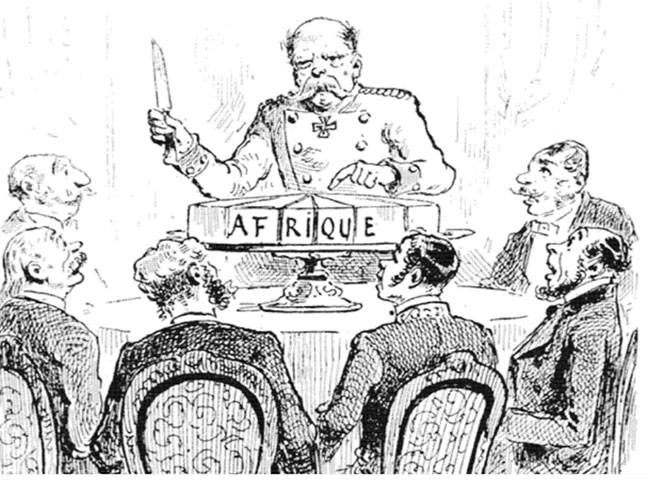“The partition of Africa must not be seen as an isolated event. It was a continuation of previous policies of European exploitation and flowed naturally from the 400 years of transatlantic slavery. Having provided the wealth that created the basis for the Industrial Revolution in Europe, transatlantic slavery had outlived its main usefulness. The industries needed raw materials and these were to be found in Africa. To prevent hostilities breaking out over the control of Africa’s resources, the Berlin Conference was held to carve up Africa and its resources.”
–Rotimi Sankore, Nigerian Journalist
In February 1885, when European colonialism of Africa was rising, a General Act was signed by European powers as they met in Berlin to divide Africa amongst them to avoid any conflict in the future. This is popularly known in colonial history as the scramble for Africa, as extensive maps were drawn up and boundaries were established at the Berlin Conference.
The Berlin conference was spearheaded by Otto Von Bismarck, the Chancellor of Germany and was attended by all major European powers like Britain, France, Austria, Belgium, Spain Italy and Denmark etc. It was at this very conference that the European countries claimed to create conditions that would be most favorable to the development of trade and civilization in Western Africa. In addition, they said they were concerned with “furthering the moral and material wellbeing of the native population”. What was so ironic about this situation was that while they claimed to uplift Africa, they continued to plunder and exploit the continent through the Atlantic slave trade and colonial exploitation of local resources. A conference that had convened to ensure peace and stability in Africa saw that not a single African was present amongst the European powers in Berlin.
While the conference was intended to keep peace in the region, it ushered in a period of great colonial violence, pillage and destruction for the people of Africa.






